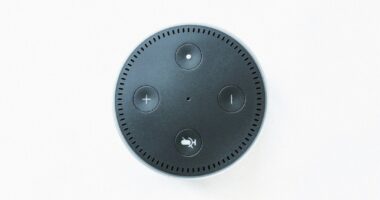The music business and the methods used to market & promote music are always changing in the current digital era. Music marketing strategies no longer only focus on conventional marketing techniques like radio airplay and physical album sales. To reach their target audience and stand out in a crowded market, artists and record labels are instead relying on creative & evolutionary strategies.
Key Takeaways
- Evolutionary tactics are essential for music marketing success
- Grassroots marketing strategies can help build a loyal fan base
- Social media is a powerful tool for music marketing
- User-generated content can increase engagement and reach
- Working with a UGC agency can provide valuable expertise and resources
In the context of music marketing, “evolutionary tactics” refers to the application of novel and imaginative methods to engage with fans and promote music. In order to generate buzz about a musician or song, these strategies frequently make use of social media, user-generated content, & grassroots marketing. Artists and record labels can improve their chances of success in the fiercely competitive music industry by adopting these strategies and establishing a deeper connection with their audience.
Guerrilla marketing, sometimes referred to as grassroots marketing, is a tactic that concentrates on generating buzz about a good or service using outlandish & inexpensive techniques. Grassroots strategies in music marketing refer to interacting with fans directly and building a fan base around a song or artist. A noteworthy instance of an effective grassroots music marketing initiative is the 2012 release of “Thrift Shop,” a hit song by Macklemore and Ryan Lewis. Rather than depending on conventional radio play, the pair employed grassroots methods to promote the song.
They contacted well-known bloggers & social media influencers, who assisted in telling their followers about the song. After gaining momentum, the song went viral, peaked at number one on the charts, and took home several accolades. In order for musicians and record labels to use grassroots marketing techniques in music marketing, they can:1.
Find social media influencers and prominent bloggers who share the same interests as their target market, and get in touch with them. 2. Via word-of-mouth promotion, encourage listeners to tell their friends and family about their music. 3. To establish a more personal connection with your fans, host exclusive events like listening parties or house concerts. 4. To promote their music more widely, team up with nearby companies and associations. Social media is very important in today’s digital world for music promotion.
With the help of social media platforms like Facebook, Instagram, Twitter, and YouTube, musicians and record labels can communicate directly with their fans, share music, and interact with them in real time. When promoting music on social media, it’s critical to:1. Throughout all social media channels, establish a recognizable and interesting brand presence. 2.
Post frequently and engage with followers by answering their messages & comments. 3. Give fans a peek into the artist’s life by sharing behind-the-scenes content, like studio sessions or tour diaries. 4. To reach a wider audience & reach new ones, collaborate with other artists and influencers. 5. To reach particular audiences and get more attention, make use of social media platforms’ paid advertising options. Anything that is produced by fans or customers, including images, videos, & reviews, is referred to as user-generated content (UGC). UGC may be a potent tool for musicians and record labels to interact with fans and foster a feeling of community around their music in the context of music marketing.
Utilizing UGC in music marketing has the following advantages:1. Authenticity: Compared to traditional marketing content, user-generated content (UGC) is frequently regarded as being more real & reliable. Fans’ sincere enthusiasm is evident when they create content about a musician or song, & it may connect with other fans. 2. Reach & Exposure: By being shared on social media, user-generated content (UGC) can potentially reach a larger audience. Fans expose an artist or song to their network when they share their content, which increases visibility and potential reach. 3. Fan Engagement: UGC invites music lovers to get involved in the song promotion process.
Fans develop a sense of ownership and bond with the musician or song by producing and disseminating content. 4. Cost-Effectiveness: Because user-generated content (UGC) is frequently produced and disseminated willingly by fans, record labels and artists can effectively promote their brands using it. Coca-Cola’s “Share a Coke” campaign is an illustration of an effective user-generated music marketing campaign. Using the hashtag #ShareACoke, the campaign invited users to post pictures of themselves holding customized Coke bottles on social media.
Millions of user-generated images and videos were produced for this UGC campaign, which increased brand awareness and sales. Record labels and musicians can do the following to take advantage of UGC’s influence in music marketing:1. Urge aficionados to produce and distribute fan art, dance routines, & cover songs, among other things inspired by their music. 2. Provide incentives, like exclusive merchandise or meet-and-greet opportunities, to fans who participate in your contests or challenges to encourage them to create user-generated content. 3. Use user-generated content on their website or social media pages to express gratitude and promote a feeling of community. 4.
Encourage fans to make & share content with their music by utilizing user-generated content (UGC) platforms like TikTok and Instagram Reels. While record labels and artists can use UGC strategies independently, collaborating with a UGC agency can simplify the process & offer a number of advantages. For brands and artists, UGC agencies specialize in developing and overseeing UGC campaigns. They possess the know-how and means to generate original ideas, interact with influencers, and monitor the effectiveness of user-generated content campaigns. Through collaboration with a UGC agency, record labels and artists can optimize the effectiveness of their UGC strategies while saving time and trouble. Using a UGC agency to promote music has several advantages, such as:1.
Expertise: UGC agencies have knowledge of creating & carrying out fruitful UGC campaigns. They can customize strategies to reach particular target audiences because they are aware of the subtle differences between various social media platforms. 2. Influencer Relationships: UGC agencies frequently have existing connections with content producers and influencers, which facilitates cooperation and broadens the audience for UGC campaigns. Three. Creative Concepts: In order to help musicians & record labels stand out in a crowded market, UGC agencies can offer new and creative ideas for UGC campaigns. 4.
Analytics and Reporting: To monitor the effectiveness of UGC campaigns and obtain insightful data for upcoming marketing plans, UGC agencies can leverage sophisticated analytics tools. The track record, customer references, and services offered by a UGC agency are crucial factors to take into account when selecting one for music marketing. Partnering with an agency that recognizes the artist’s brand and target market is also essential.
A compilation of fans’ and potential fans’ contact details, including email addresses and social media handles, is called a music marketing database. For record labels and artists to effectively promote their music & stay in touch with their fans, they must create a music marketing database. Developing a music marketing database has the following advantages: 1. Direct Communication: By avoiding the constraints of social media algorithms, musicians and record labels can communicate directly with their audience by maintaining a database of fan contacts. 2.
Marketing that is more specifically targeted and tailored is made possible by record labels and artists using music marketing databases to divide up their fan base according to factors like geography, musical tastes, or demographics. 3. Fan Engagement: Artists and record labels can cultivate a feeling of exclusivity and engagement with their audience by providing frequent updates & exclusive content to their database. 4. Data Insights: Record labels & artists can use music marketing databases to track the effectiveness of their marketing campaigns & make well-informed decisions by accessing insightful data like open rates and click-through rates.
In order to create a database for music marketing, musicians & record labels can:1. Give fans’ contact information in return for perks like discounts or access to exclusive content. 2. Capture fan information on their website by using lead generation tools, like landing pages or pop-up forms. 3. Organize giveaways or competitions where participants must supply their contact information. 4. To increase their reach & engage in cross-promotion, team up with other brands or artists. Thanks to its short videos and viral trends, TikTok has become a potent platform for music promotion.
Record labels and artists can use TikTok music influencers to reach a younger audience and boost their visibility. When collaborating with TikTok musicians who are influencers, remember to:1. Find influencers who are in line with the target audience & brand of the artist by conducting research. 2. Showcase the artist’s music and emphasize the advantages of working together in a customized message that you send to influential people. 3. To facilitate influencer content creation, give them creative resources like song or dance routine snippets. 4. Keep an eye on influencers’ content, interact with it by leaving comments and posting it on other social media sites.
Let’s look at some case studies to get an understanding of what makes a successful music marketing campaign:1. Lil Nas X’s “Old Town Road”: Lil Nas X’s release of the song is a shining example of the effectiveness of user-generated content & grassroots marketing. Due to users making dance moves and lip-syncing videos to the catchy song, TikTok saw a spike in popularity. Because Lil Nas X welcomed the song’s viral potential and interacted with fans on social media, it became popular and broke records. 2. 2013 saw the unexpected release of Beyoncé’s self-titled album, which came as a surprise to fans as there had been no prior notice or promotion. This unorthodox marketing tactic generated a lot of buzz and significant media coverage. In just three days, the unexpected release generated over 800,000 album sales and broke the previous record for digital album sales.
Three. Interactive Album Campaign by The 1975: To promote their album “A Brief Inquiry into Online Relationships,” the British band The 1975 came up with a special and engaging marketing campaign. Fans were able to interact with exclusive content and explore various facets of the album through a website that was designed to resemble a social media platform. Fans were excited & filled with anticipation as a result of this immersive experience, & the album release went well.
We can infer from these case studies that effective music marketing campaigns frequently combine user-generated content (UGC), grassroots tactics, and creative methods that appeal to the target demographic. There will probably be a number of new developments in music marketing in the future as consumer behavior and technology progress. The following are forecasts regarding the direction of music marketing:1.
Virtual Reality (VR) Experiences: By offering fans immersive and interactive experiences, virtual reality has the potential to completely transform the music industry. Virtual concerts & behind-the-scenes experiences can be produced by musicians and record labels and accessed by fans from the comfort of their homes. 2. Integration of Artificial Intelligence (AI): Record labels and artists can use AI technology to create more individualized and focused marketing campaigns by using it to analyze data and consumer behavior. AI-driven chatbots can also offer immediate customer service and interaction.
Three. Integration of Augmented Reality (AR): By superimposing digital content on the real world, AR technology can improve the fan experience. Through their smartphones, musicians and record labels can provide fans with AR filters or interactive experiences. 4. Live streaming & virtual events: Due to the COVID-19 pandemic, these forms of media are becoming more and more popular. In order to reach a larger audience and give fans who are unable to attend in person an alternative, artists and record labels are probably going to keep adding virtual components even after live events reappear. In summary, the music industry is always changing, and in order for musicians and record labels to remain relevant & maintain a connection with their fan base, they must modify their marketing approaches.
Artists & record labels can boost their chances of success in the fiercely competitive music industry by adopting evolutionary tactics like grassroots marketing, utilizing social media & user-generated content (UGC), collaborating with UGC agencies, creating a music marketing database, and staying ahead of emerging trends. Recalling that there isn’t a single music marketing strategy that works for everyone is crucial. Each record label and artist needs to customize their marketing plans to fit their specific target market & brand. Artists and record labels can improve their marketing strategies and accomplish their objectives by trying out various approaches and evaluating the outcomes.
It’s critical for musicians and record labels to remain flexible, welcome new ideas, and tweak their marketing tactics on a regular basis to cater to the changing demands and tastes of their fan base in this dynamic industry. They can put themselves in a position to succeed over the long run in the fascinating and dynamic field of music marketing by doing this.
FAQs
What is grassroots music marketing?
Grassroots music marketing refers to the process of promoting music through word-of-mouth, street teams, and other low-cost methods that rely on the support of fans and local communities.
What is social media music marketing?
Social media music marketing refers to the use of social media platforms such as Facebook, Twitter, and Instagram to promote music and engage with fans.
How do grassroots and social media music marketing differ?
Grassroots music marketing relies on personal connections and local communities, while social media music marketing relies on online platforms and digital engagement.
What are some examples of grassroots music marketing tactics?
Examples of grassroots music marketing tactics include street teams, handing out flyers and posters, playing live shows, and building relationships with local media outlets.
What are some examples of social media music marketing tactics?
Examples of social media music marketing tactics include creating engaging content, using hashtags, collaborating with influencers, and running targeted ads.
Why is music marketing important?
Music marketing is important because it helps artists and musicians reach new audiences, build their fan base, and ultimately sell more music and merchandise.
How has music marketing evolved over time?
Music marketing has evolved from traditional methods such as radio and print advertising to more modern tactics such as social media and influencer marketing. The rise of digital platforms has also made it easier for independent artists to promote their music and reach new audiences.





